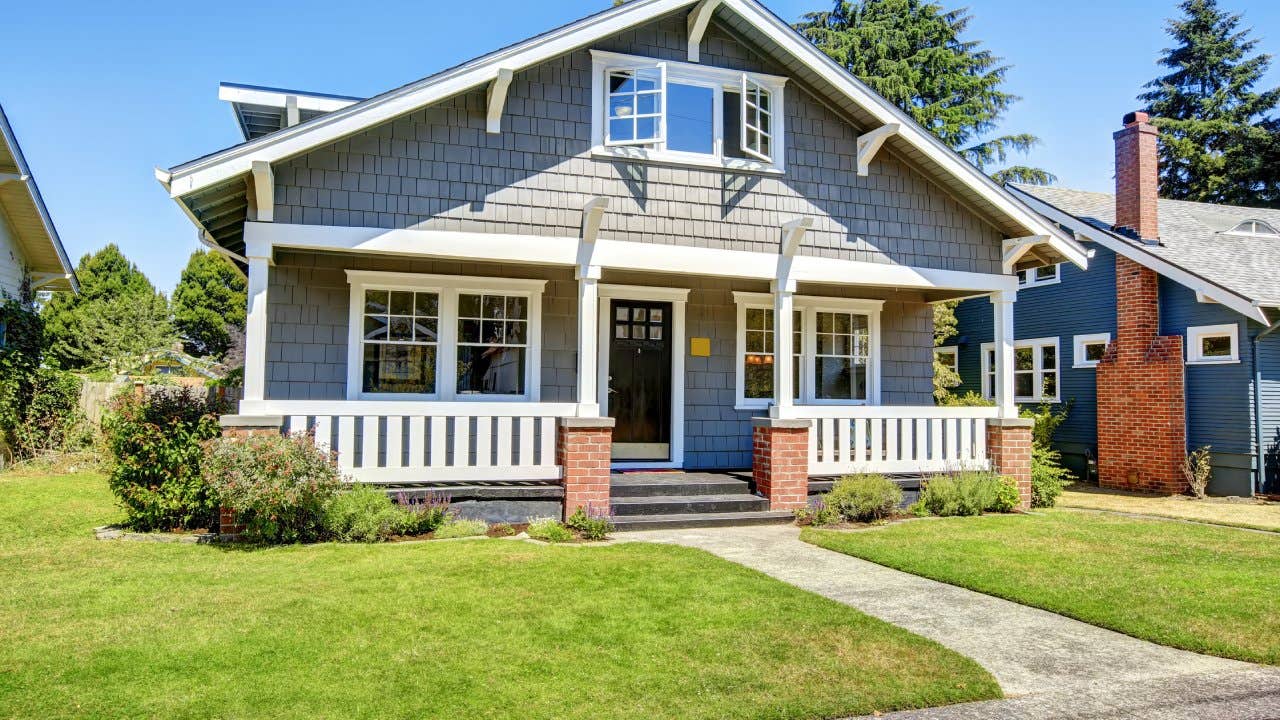How much house can I afford if I make $125,000 a year?

In many places, $125,000 can go a long way. But if you live in an expensive area or have a big existing financial commitment, like student loan debt, that seemingly cushy salary might still leave you crunching the numbers on your budget. Add inflation and climbing mortgage rates into the mix, and you want to be extra careful you don’t buy more house than you can afford. Here’s how to figure out where you stand, budget-wise.
The 28/36 rule
Let’s start with a simple but extremely useful metric: the 28/36 rule.
This rule of thumb states that no more than 28 percent of your gross income should go toward your mortgage, and no more than 36 percent of your gross income should go toward your overall debt — including balances like car loans, student loans and credit cards.
With a gross income of $125,000, your monthly income is about $10,400. The 28/36 rule dictates that you shouldn’t be putting more than about $2,916 a month toward your mortgage, and no more than $3,750 toward your overall debt.
Say you have student loan payments of $500 a month and a car payment of $350 per month. If you take out a loan that gives you a mortgage and insurance amount of about $2,900 a month, you’re going to be hitting the full 36 percent of your monthly gross income allocated toward debt. While that may be doable, remember that buying a home comes with many other expenses, from closing costs to upkeep and maintenance to property taxes.
“Housing costs are burdensome if they take up more than 30 percent of your income,” says Nadia Evangelou, senior economist and director of real estate research at the National Association of Realtors (NAR). To factor in expenses like mortgage insurance, home insurance, taxes and expenses for property maintenance, she says, “NAR’s rule of thumb is to use a 25 percent share of mortgage payment to income.”
In other words, the 28/36 rule is a generally accepted guideline, but you might want to give yourself a bit of wiggle room to manage all of the expenses of homeownership.
How much house can you afford?
The 28/36 rule is a great starting place, but there are plenty of other factors that come into play. Mortgage lenders will consider these factors (and more) when determining how much house you can afford to purchase:
Credit score
The better your credit, the lower the interest rate you can get on a mortgage. If you want to save a good chunk of change over the life of your mortgage, look for ways to improve your score, like paying down existing debt. Generally, you want a credit score of at least 620 when buying a house, though different types of loans have different requirements.
Debt-to-income (DTI) ratio
Your DTI is the 36 percent portion of the 28/36 rule, so keeping it at or below 36 percent is typically best. Some lenders and loan programs allow for a DTI of 43 percent or more, but just because you can go higher doesn’t mean you necessarily should. A high DTI can come with some serious drawbacks. “A high debt-to-income ratio makes it harder to qualify for a mortgage or to secure a good interest rate,” Evangelou says.
Down payment
How much of the home’s price you put down upfront significantly impacts your mortgage — and, as a result, the long-term affordability of the house. That doesn’t necessarily mean you absolutely must have a 20 percent down payment. But that amount will significantly lower your monthly costs, including eliminating the need to pay for private mortgage insurance.
How much should you put down on a home purchase? “There isn’t a one-size-fits-all answer,” Evangelou says. It really depends on your finances, and people often go below 20 percent. “In 2022, the median down payment was 14 percent for all buyers, while for first-time buyers, it was even smaller at 6 percent,” she says.
That said, the more you can put down, the more house you can afford. Using NAR’s 25 percent metric, at the current mortgage rate (6.66 percent in late March), “buyers earning $125,000 a year can purchase a home up to $510,000 if they put 20 percent down,” Evangelou says. “However, if they put 10 percent down, they can afford to purchase a home for up to $450,000.”
Location
House prices aren’t homogenous throughout the country, or even in any given state. Your money will go much further in certain areas than others. While a $125,000 salary might afford you a sprawling estate in some locales, it won’t get you much in, say, Silicon Valley or the Hamptons. As you determine how much house you can afford, compare that against your local real estate market to make sure your budget aligns with actual home prices. A local real estate agent can help you parse the market in your area.
Home financing options
If you’re feeling good about your finances, it’s time to start exploring the mortgage you’ll need to make your home purchase happen.
Not all loans are created equal. Different types offer different benefits and drawbacks, so explore your mortgage options. As you do your research, look specifically at the income caps for different loan types. That $125,000 you bring in might mean you won’t qualify for specific loan programs, including USDA, Fannie Mae HomeReady and Freddie Mac Home Possible loans.
Also, Evangelou advises that you plan carefully if you’re considering an adjustable-rate mortgage. “Amid rising mortgage rates, adjustable-rate mortgages typically become more attractive to buyers. These mortgages have a lower rate than fixed-rate loans, and the savings may be substantial,” she says. “However, borrowers need to be aware that the rate changes after the initial period. Thus, these borrowers should consider selling or refinancing their home before the initial period expires in order to avoid any significant changes in their payment. Otherwise, this can cause hardship for these borrowers if they can’t afford to make the new payment.”
First-time homebuyer programs
If this will be your first home purchase, there are a number of resources to help you. Be advised, though, that your relatively high annual income might disqualify you from many of the home loan programs geared to first-time buyers. There are also down payment assistance programs, such as grants and forgivable loans, in just about every area. If coming up with a down payment feels like a challenge despite your income, explore the options available near you.
Get preapproved for a mortgage
While you can do a lot of number-crunching yourself, there’s no better way to figure out how much house you can afford than to get preapproved for a mortgage. This means working with a mortgage lender directly: They look at your financial situation to determine how big of a loan the are likely to offer you.
Once you’re preapproved, you’ll also be better set up to start house-hunting. The preapproval letter can strengthen your offer by showing sellers that you are a qualified buyer. And when you’re ready to officially apply for a mortgage, you’re under no obligation to use the same lender.
Next steps
Once you have a budget for your home purchase, it’s time to get a pro in your corner. Do some research and interview different agents to find the best one for you. The right real estate professional can guide you through the entire homebuying process.
Why we ask for feedback Your feedback helps us improve our content and services. It takes less than a minute to complete.
Your responses are anonymous and will only be used for improving our website.






